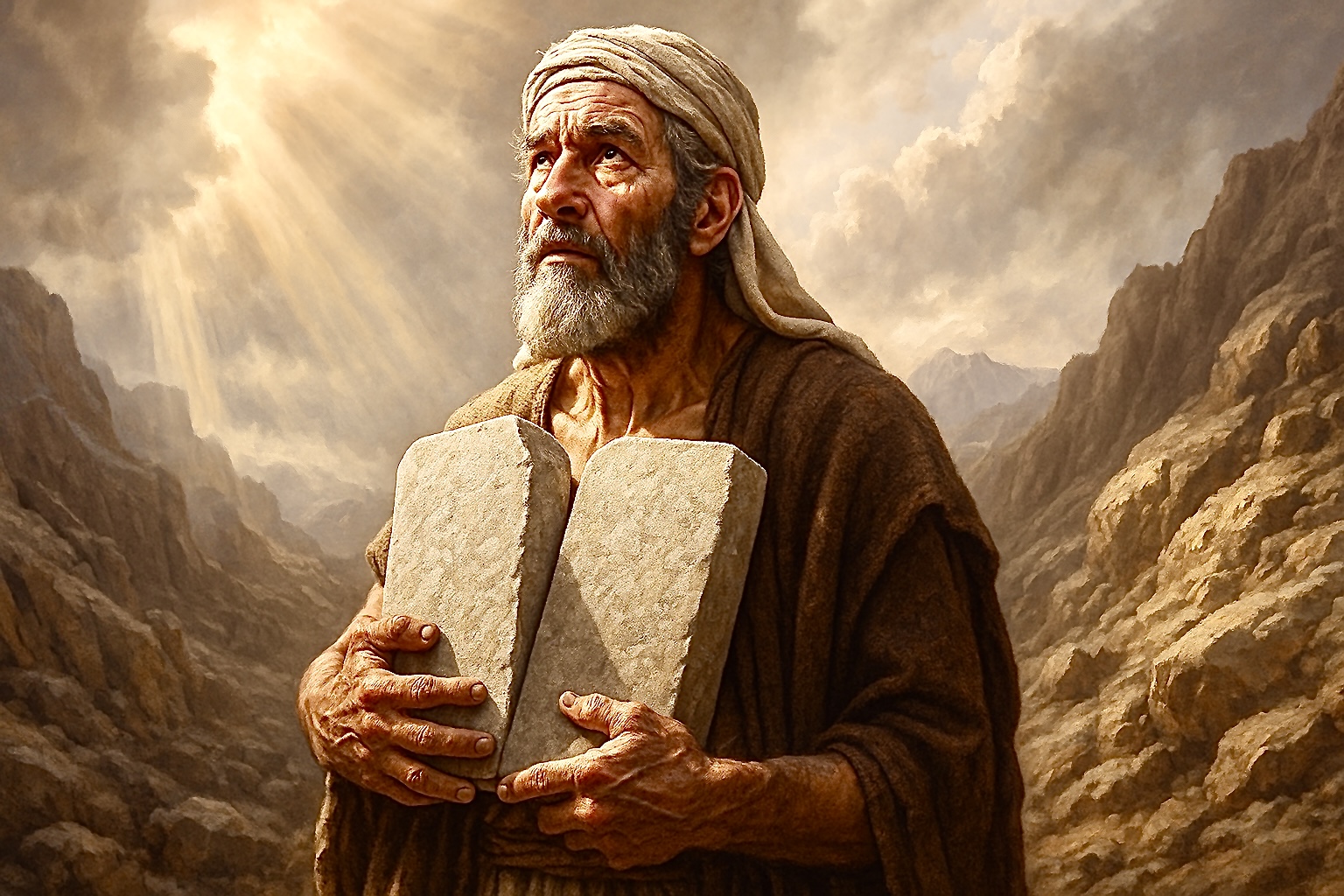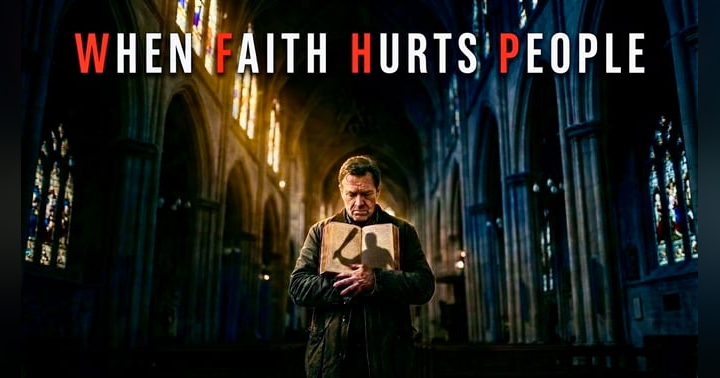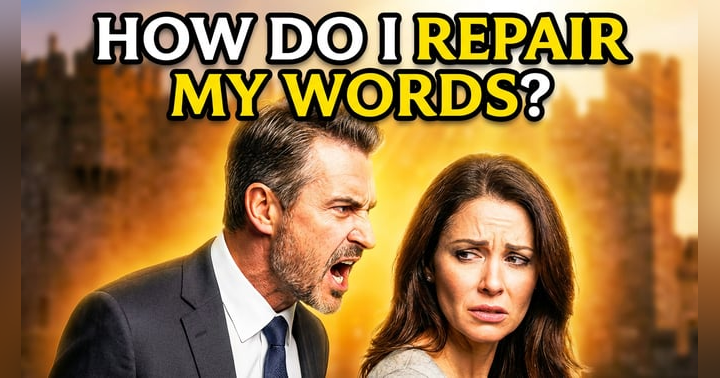Moses' Second Chance: Teshuvah and Covenant Responsibility

In this blog post, we'll be diving deep into the story of Moses carving the second set of stone tablets, as recounted in Exodus 34. This isn't just a tale about stone and chisels; it's a powerful illustration of 'teshuvah' (repentance), second chances, and our ongoing responsibility within a covenant relationship with God. We'll explore the Hebrew language, the cultural context, and the profound implications this story holds for our lives today. It’s a concept touched on in our latest podcast episode, Broken Stones - Rewriting Your Story. We’ll be expanding on the ideas discussed with Dr. Michael Heiser and Dr. Skip Moen, enriching our understanding of this pivotal moment in biblical history and its relevance to our modern spiritual journeys. Make sure to check it out!
Introduction: Moses' Second Chance and Teshuvah
The story of the Ten Commandments is iconic. Moses ascends Mount Sinai, receives the divine law inscribed on stone tablets, and descends to find his people engaged in idolatry. In a moment of righteous anger, he shatters the tablets. But the story doesn't end there. God, in his infinite mercy, gives Moses—and the Israelites—a second chance. This second chance centers around the act of Moses carving a new set of tablets. This act symbolizes the concept of teshuvah, a Hebrew word that encompasses repentance, return, and renewal. It's not merely about feeling sorry for past actions; it's about actively turning away from them and returning to a right relationship with God. The command to prepare the stone is the first step.
The Command to Carve: 'Pesol Lekha' and Personal Responsibility
Exodus 34:1 states, "Cut for yourself (pesol lekha) two tablets of stone like the first." This command is striking for several reasons. First, it places the onus on Moses. God doesn't magically create the second set of tablets. He instructs Moses to actively participate in the process. The phrase "pesol lekha" highlights this personal responsibility. Moses must engage in the hard work of preparing the stone, shaping it, and making it ready to receive the divine inscription. This act mirrors our own journey of repentance. God doesn't simply erase our sins; He calls us to actively participate in our own transformation, to “cut away” the things in our lives that hinder our relationship with Him.
Hebrew Language Insights: Pasal and Sacred Craftsmanship
The Hebrew word pasal (פָּסַל) is rich in meaning. While it often translates to "carve" or "cut," it also carries connotations of craftsmanship and artistry. It’s not just about hacking away at a stone. Moses is being asked to engage in a sacred act of creation, to prepare a worthy vessel for God's word. The choice of this word underscores the value God places on skilled labor and the dedication required to create something of lasting value. Further, the use of pasal suggests that Moses wasn't just randomly grabbing any stone. He needed to select carefully, considering the quality and suitability of the stone for its intended purpose. This intentionality reflects the seriousness of the covenant renewal. The preparation of the stone itself becomes an act of worship, a tangible expression of repentance and a commitment to honoring God's law. The concept of sacred craftsmanship links the physical labor with spiritual significance, emphasizing that even our mundane tasks can be elevated to acts of devotion when performed with intention and skill, especially in service to God. This reminds us that how we approach our work, the care and diligence we invest, are all reflections of our commitment to God.
Tools and Training: Moses' Preparation for the Task
While the Bible doesn't explicitly detail the tools Moses used, we can infer based on the context and knowledge of ancient Near Eastern practices. Bronze tools were common during this period, and it's likely that Moses would have used a variety of chisels, hammers, and perhaps even saws to shape the stone. Furthermore, Moses' upbringing in the Egyptian court would have exposed him to skilled artisans and their techniques. Egypt was renowned for its stone carving and monumental architecture. It's plausible that Moses received some form of training in these crafts, which would have equipped him with the skills necessary to carve the tablets. Thinking about Moses' preparation underscores that even in spiritual matters, God often works through our natural abilities and experiences. The time Moses spent in Egypt, although a period of exile, was not wasted; it provided him with valuable skills that he would later use in service to God. This highlights the importance of honing our talents and seeking knowledge, as these can become instruments for fulfilling God's purposes.
Teshuvah: Repentance, Obedience, and New Beginnings
The act of carving the second set of tablets is a powerful illustration of teshuvah. It's not enough for Moses to simply feel bad about breaking the first set. He must actively demonstrate his repentance by obeying God's command and undertaking the arduous task of preparing new tablets. This obedience signifies a commitment to living in accordance with God's law. Teshuvah is not a one-time event; it's an ongoing process of turning away from sin and returning to God. It involves acknowledging our failures, seeking forgiveness, and making a conscious effort to change our behavior. It's a journey of continuous growth and refinement, guided by God's grace and the desire to live a life that is pleasing to Him. The story of Moses emphasizes that God is willing to forgive and offer new beginnings, but He also expects us to take responsibility for our actions and actively participate in our own transformation.
The Covenant Context: Ancient Near Eastern Parallels
Understanding the covenant context of this story sheds further light on its significance. In the ancient Near East, covenants were formal agreements between parties, often involving oaths, sacrifices, and symbolic acts. These covenants established mutual obligations and responsibilities. The covenant between God and Israel, established at Mount Sinai, was no exception. The Ten Commandments were the core of this covenant, outlining the fundamental principles that would govern the relationship between God and His people. The breaking of the first set of tablets symbolized a breach of this covenant. The carving of the second set, therefore, represents a renewal of the covenant, a reaffirmation of the commitment between God and Israel. This parallels ancient Near Eastern practices where broken treaties were often rewritten and re-ratified. This understanding highlights the seriousness of covenant relationships and the consequences of breaking them. It also underscores the importance of fidelity and commitment in our relationship with God. We are called to honor our covenant obligations, to live in accordance with His word, and to remain faithful to Him, even in the face of challenges.
God's Presence: The Ark and the Significance of Both Tablets
The Ark of the Covenant served as a physical representation of God's presence among the Israelites. It was a sacred chest that housed the Ten Commandments, symbolizing the divine law and the covenant relationship. The fact that both sets of tablets—the broken ones and the new ones—were, according to some traditions, placed within the Ark is significant. It suggests that even in our brokenness, God's presence remains with us. The broken tablets serve as a reminder of our failures and the consequences of sin, while the new tablets represent God's forgiveness and the possibility of renewal. Together, they symbolize the full spectrum of the human experience—our flaws and our potential for redemption. This underscores the enduring nature of God's love and grace. He doesn't abandon us in our moments of weakness; He remains present, offering us the opportunity to learn from our mistakes and to grow in our relationship with Him. The Ark, therefore, becomes a symbol of hope, reminding us that even when we stumble, God is always there to guide us back to the path of righteousness.
Modern Application: Covenant Responsibility in Our Lives
The story of Moses and the second set of tablets has profound implications for our lives today. We, too, are called to live in a covenant relationship with God. Through Jesus Christ, we have entered into a new covenant, one that is based on grace and forgiveness. However, this doesn't negate our responsibility to live according to God's will. We are called to actively participate in our own spiritual growth, to turn away from sin, and to embrace a life of obedience and service. Just as Moses had to prepare the stone, we must prepare our hearts and minds to receive God's word and to allow it to transform us. This involves self-reflection, prayer, and a willingness to confront our own shortcomings. It also involves actively seeking ways to serve God and to love our neighbors. Living in covenant with God is not a passive endeavor; it requires active engagement and a commitment to living a life that is pleasing to Him. We must strive to honor our covenant obligations, to remain faithful to Him, and to let our lives be a testament to His love and grace.
Featuring insights from Dr. Michael Heiser and Dr. Skip Moen, the related podcast episode explores these themes in even greater detail, providing valuable perspectives on the Hebrew language, the cultural context, and the spiritual implications of this story.
Conclusion: Preparing the Stone for Divine Inscription
The story of Moses carving the second set of stone tablets is a powerful reminder of God's grace, our covenant responsibility, and the transformative power of teshuvah. It challenges us to actively participate in our own spiritual growth, to turn away from sin, and to embrace a life of obedience and service. Just as Moses had to prepare the stone, we must prepare our hearts and minds to receive God's word and to allow it to transform us. As we reflect on this story, let us be inspired to live in a way that honors our covenant with God and reflects His love and grace to the world. Listen to the full discussion, including the unique perspectives of Dr. Michael Heiser & Dr. Skip Moen, by clicking the link: Broken Stones - Rewriting Your Story. There, we uncover the cultural significance of covenant responsibility, and the intimate Hebrew phrase "pesol lekha"—"cut for yourself," to give you the tools for a deeper understanding. Remember, you don’t get to punt the second time. You have to prepare the stone.



